05.20.2020
Helpful Tips for Cooks of Any Level

Fresh spices can turn a few simple ingredients into a restaurant meal. While there aren’t any wrong ways to use an herb or spice, there are a few tricks to help you get the most out them.
Wake Up Your Peppercorns

Most people are familiar with toasting their whole spices before grinding them. Homemade curry blends anyone? Black peppercorns somehow missed this memo. Next time you’re making a pepper-forward recipe (like cacio e pepe) toast your peppercorns in a dry pan before adding them to your pepper mill. This wakes up the essential oils within the peppercorn, revealing nuanced flavor notes you may not have noticed before.
Give Leftovers a Makeover
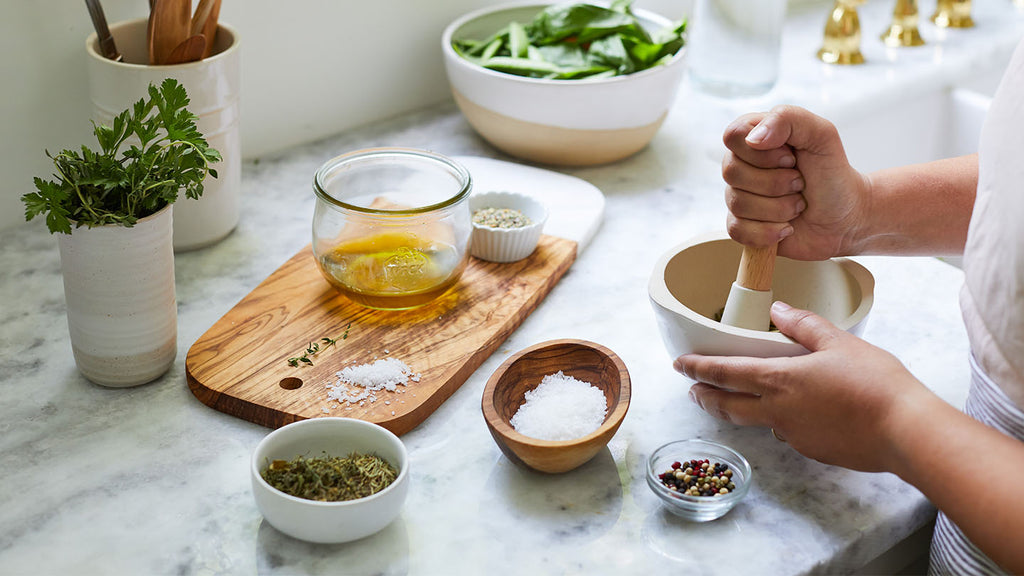
Last night's roasted chicken doesn’t have to be just that today. Take some chili powder, lime juice, maybe even some dark beer, and lightly braise it in a sauté pan like you might cook an etouffee. After about fifteen minutes, you have deliciously tender meat for tacos or enchiladas. Check out this article on leftover recipe ideas for more tips.
With Dried Herbs—Go Easy and Time it Right
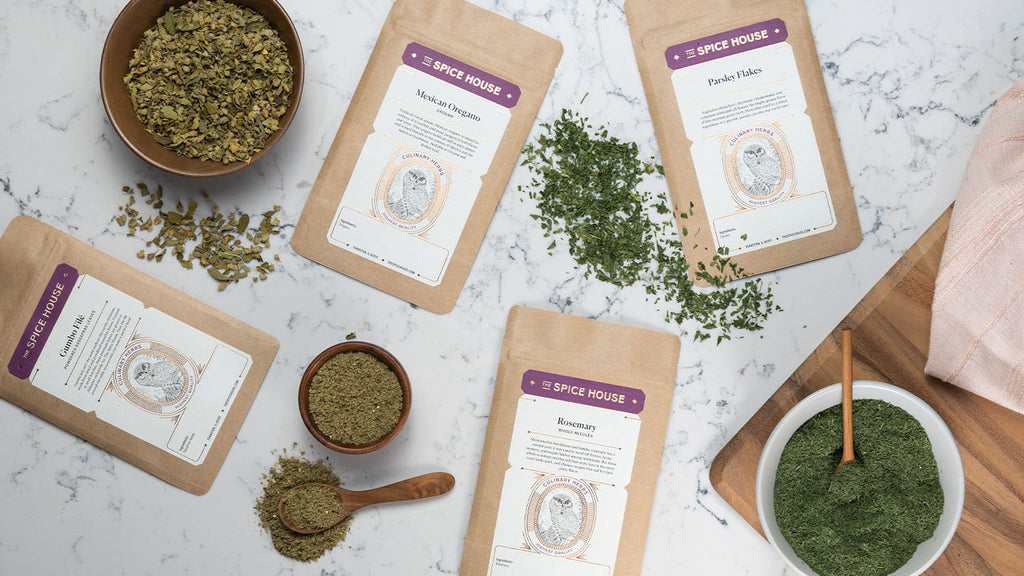
As fresh herbs dry, aromatic compounds intensify as moisture content leaves. It’s ideal to use at least half the amount of dried herbs to fresh in a recipe. With a robust herb like rosemary, start with a third of the amount of fresh. Please note that certain recipes like this Turkish shepherd’s salad are best prepared with fresh herbs as the crisp flavor balances out the recipe.
Remember to use lighter herbs—like chervil and tarragon—towards the end of the cooking process. You can certainly take robust herbs like rosemary and encrust a lamb leg before roasting, but if you throw chervil into your soup pot first thing with the mire poix, you’ll cook off its delicate flavor.
Make Life Easier with Dried Alliums
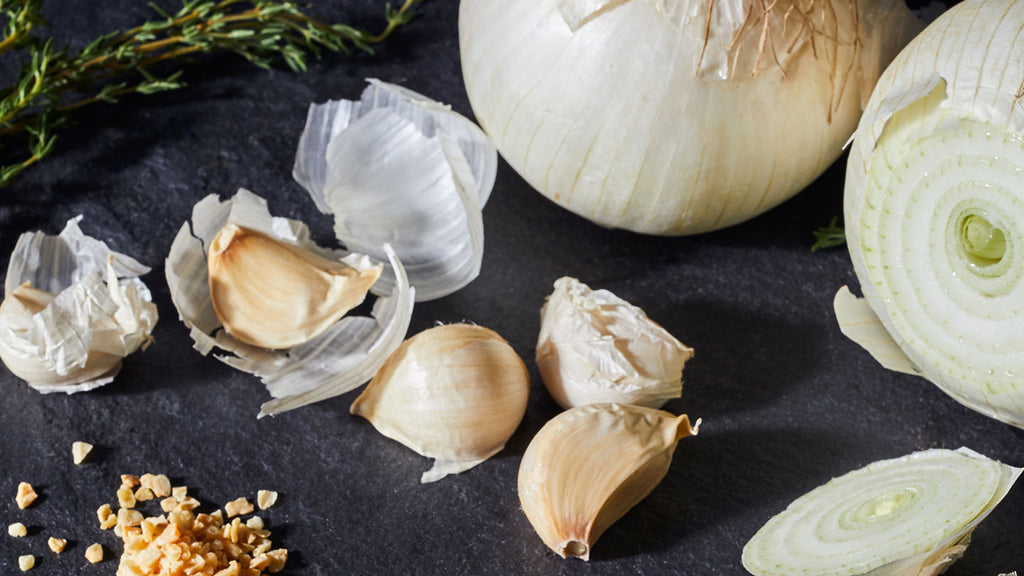
Most people will argue that fresh onions and garlic are superior to dried powders. They’re not wrong. However, dried onion and garlic save you time and effort. Not to mention they keep your fingertips from smelling. In addition to convenience, dried alliums like toasted garlic powder and toasted onion powder offer a deliciously nutty flavor that is difficult to recreate with fresh. For more detailed information and to check conversion rates, take a look at our guide on how to use dehydrated onion and garlic.
Cinnamon Sticks Aren’t Just a Decoration
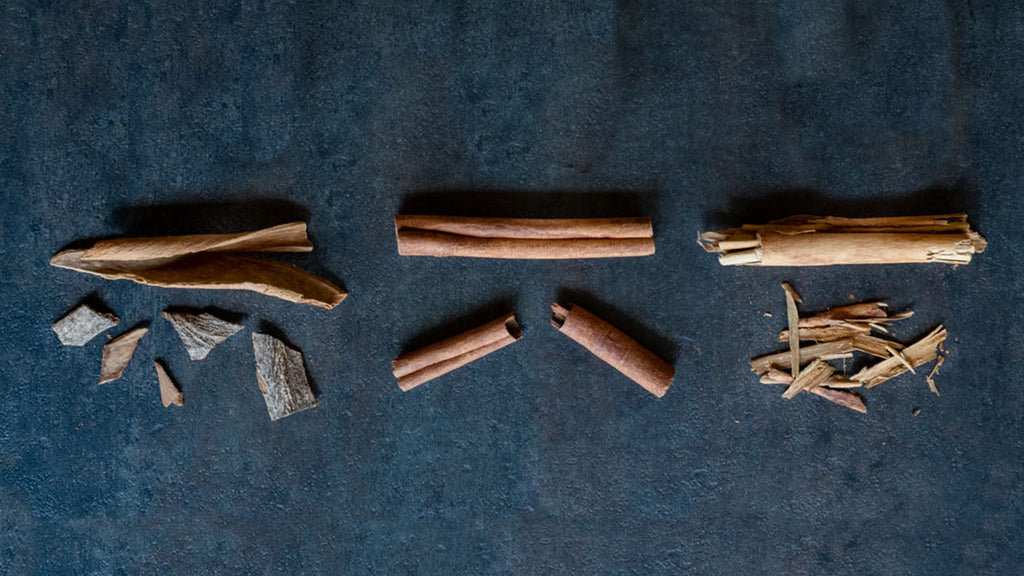
You’re likely to have a few cinnamon sticks leftover from the holidays. If you have a microplane, grind your own cinnamon fresh for some cinnamon rolls! You could also break off a piece and grind it with your coffee beans in the morning. Some of the best curry recipes call for a simmering stick of cinnamon in the pot. The slow release of its flavor adds an intriguing depth to the dish. Check our blog for more tips on how to use whole cinnamon sticks.
Make Your Own Mustard
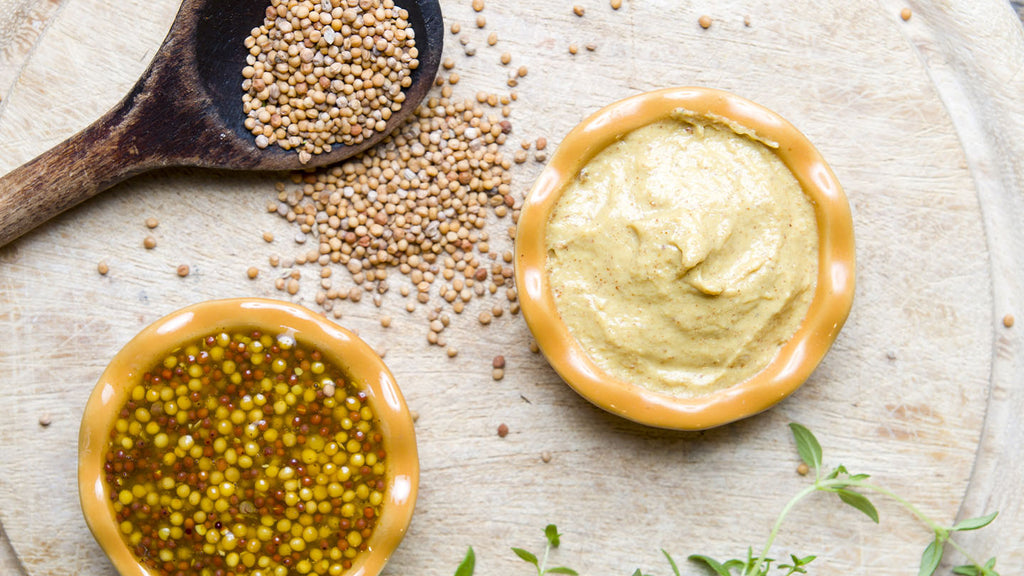
Making homemade mustard is seriously easy. Mustard, vinegar, and salt. That’s it! Combine these ingredients and let them age for a bit. Once you figure out your preferred balance for a basic mustard recipe then you can have fun testing a few new additions. Try adding honey, brown sugar, white wine, or some lemon juice. Spices are completely wide open. Try smoked paprika, horseradish powder, habanero pepper, or even curry powder.
Cook Your Spices. Yes, That’s Right.
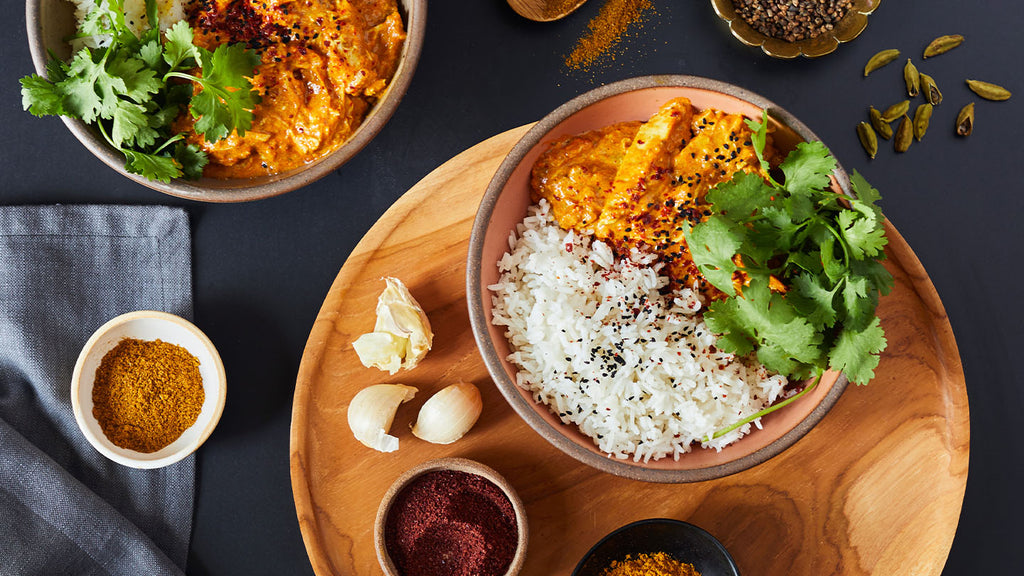
The same effect described earlier with peppercorns holds true with ground spices as well. Instead of toasting them, you actually want to fry them. Take paprika for example, it needs to bloom like tea leaves. Half of the recipes from Hungary start by frying diced onion and a heavy spoonful of paprika together before adding anything else. This chicken paprikash recipe is the perfect example. Be careful not to let the spices burn as their flavor will become bitter. It is best to do this with sufficient oil or butter over medium-high heat.
If you have any questions about spices or have a secret tip you want to share, email us at spices@thespicehouse.com or leave a comment below.
Hi Sue Shelton,
99% of the time, yes!
If you’re doubling a recipe by volume, the spices can also be doubled.
This may vary when you scale a small recipe (12 servings) into a really large recipe (144 servings). If you’re simply doubling or tripling a recipe, the spices can be doubled like every other ingredient.
stars:5When you double a recipe and it has different spices in it do you just double all spices or will that make it to strong of a taste
Hi Camille,
That’s an excellent question. Ground spices will begin to lose their flavor and aroma after 5-6 months. If you spices smell and taste flat, it is time to replace them. When spices are ground, their cellular walls are broken, which releases the spice’s volatile oils. Whole spices, like nutmeg, cinnamon sticks, and peppercorns can last for years. You can grind these as you need them. All spices should be stored in a cool, dry place away from heat and sunlight.
How often should I replace my spices?
Great article with great advice and I’m not a novice cook. I’m keeping it for sure! Thanks!